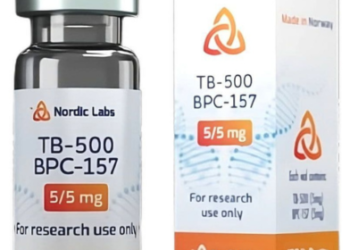If you’re like me, you’ve probably used talcum powder for years without a second thought. It’s been a household staple for decades. However, recent studies have shown that talc can pose significant health risks. The World Health Organization (WHO) has labeled talc as “probably carcinogenic,” which means it could potentially cause cancer. Knowing these risks is essential for making informed choices and safeguarding our health.
Why You Should Seek Alternatives
Talcum powder has been linked to serious health issues, including ovarian cancer and respiratory problems. The risk is particularly high when talc is contaminated with asbestos, a known carcinogen. Given these dangers, it’s crucial to seek safer alternatives to ensure our health and safety.
Natural and Safe AlternativesCornstarch: A Safe and Effective Substitute
Cornstarch is an excellent moisture-absorbing alternative to talcum powder. It’s safe for personal care and can be used just like talc. Simply apply cornstarch to dry skin to keep it smooth and dry.
Arrowroot Powder: Gentle and Absorbent
Arrowroot powder is another fantastic alternative. Its fine texture and absorbent properties make it ideal for cosmetic products. It’s gentle on the skin and a perfect substitute for talc.
Baking Soda: Versatile and Effective
Baking soda is a versatile option for personal hygiene. You can use it as a deodorant or in bath soaks. However, if you have sensitive skin, use it cautiously to avoid irritation.
Kaolin Clay: Natural and Gentle
Kaolin clay is known for its gentle properties and is widely used in skincare. It’s suitable for sensitive skin and can absorb excess oil and soothe the skin, making it a great alternative to talc.
Recent Findings from the World Health Organization
The WHO has classified talc as “probably carcinogenic,” urging both consumers and manufacturers to shift towards safer alternatives. This classification highlights the potential health risks associated with talcum powder and underscores the need for stricter safety measures.
How to Choose Safe Products
To ensure safety, always read product labels carefully. Look for talc-free products from reputable brands known for their commitment to health and safety. This helps in avoiding harmful substances and ensures the use of safe alternatives.
DIY Alternatives
Creating talc-free powder at home is simple and safe. Use ingredients like cornstarch, arrowroot powder, and kaolin clay. Avoid ingredients that may cause irritation or are not suitable for your skin type.
Taking Charge of Your Health
Switching to safer alternatives to talcum powder can have significant long-term health benefits. Making informed choices for your personal and family health is a proactive step toward ensuring well-being and safety.
FAQsWhat are the health risks associated with talcum powder?
Talcum powder has been linked to ovarian cancer and respiratory issues. Asbestos contamination in talc is particularly harmful, making it essential to avoid products containing talc.
How can I identify talc-free products in stores?
Look for labels that explicitly state “talc-free.” Check the ingredient list for alternatives like cornstarch, arrowroot powder, or kaolin clay.
Is cornstarch safe for use on babies?
Yes, cornstarch is generally safe for use on babies. It is a natural, gentle alternative to talcum powder and can help keep a baby’s skin dry and smooth.
What should I look for on product labels to avoid talcum powder?
Check for the absence of “talc” in the ingredient list. Look for products labeled as “talc-free” and choose those from reputable brands.
Can baking soda cause skin irritation?
Baking soda can irritate individuals with sensitive skin. It is advisable to do a patch test before using it extensively in personal care routines.
What did the WHO say about talc and cancer?
The WHO has classified talc as “probably carcinogenic,” indicating a potential link between talc and cancer, particularly ovarian cancer.
Are there any other natural alternatives to talcum powder?
Yes, other natural alternatives include oat flour, rice starch, and bentonite clay. These ingredients are safe and effective for personal care use.
By making these informed choices, we can protect ourselves and our loved ones from potential health risks associated with talcum powder. Stay safe and healthy!










